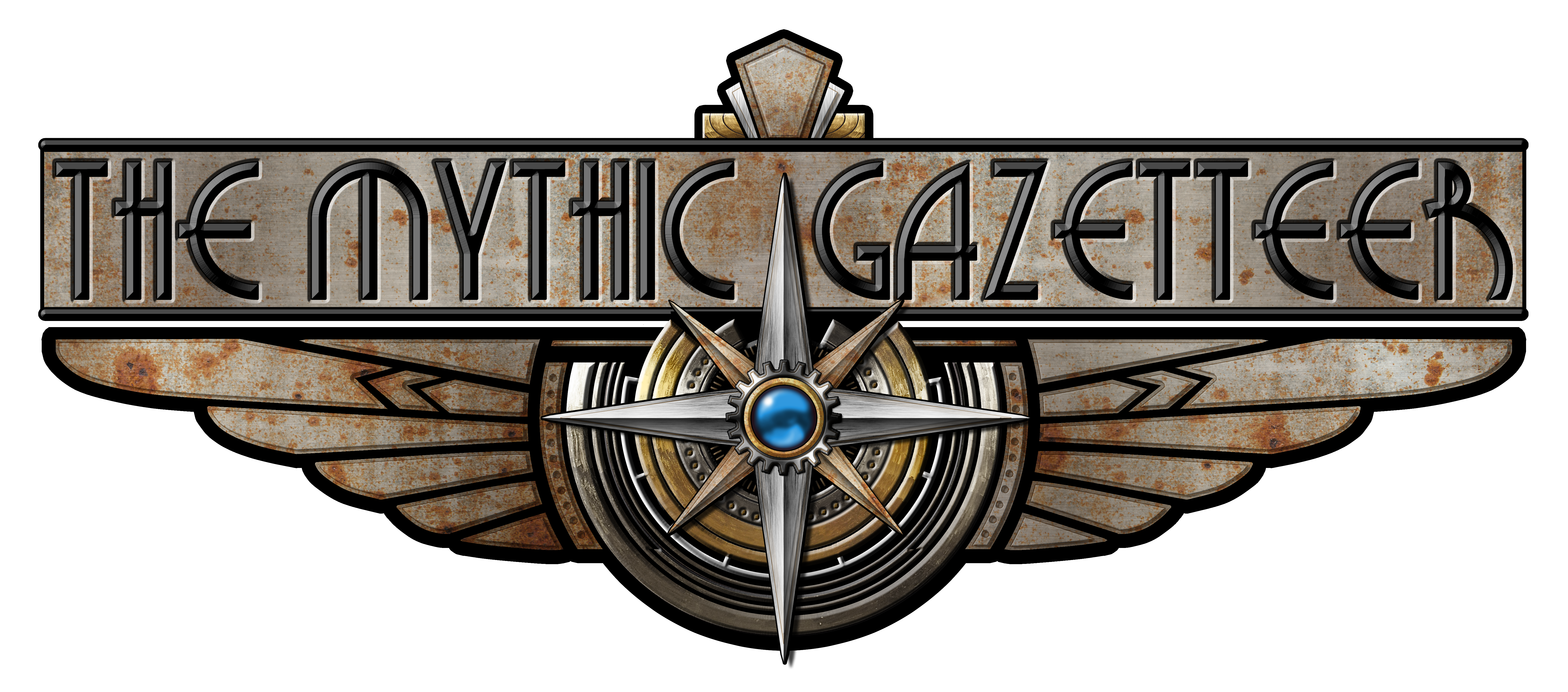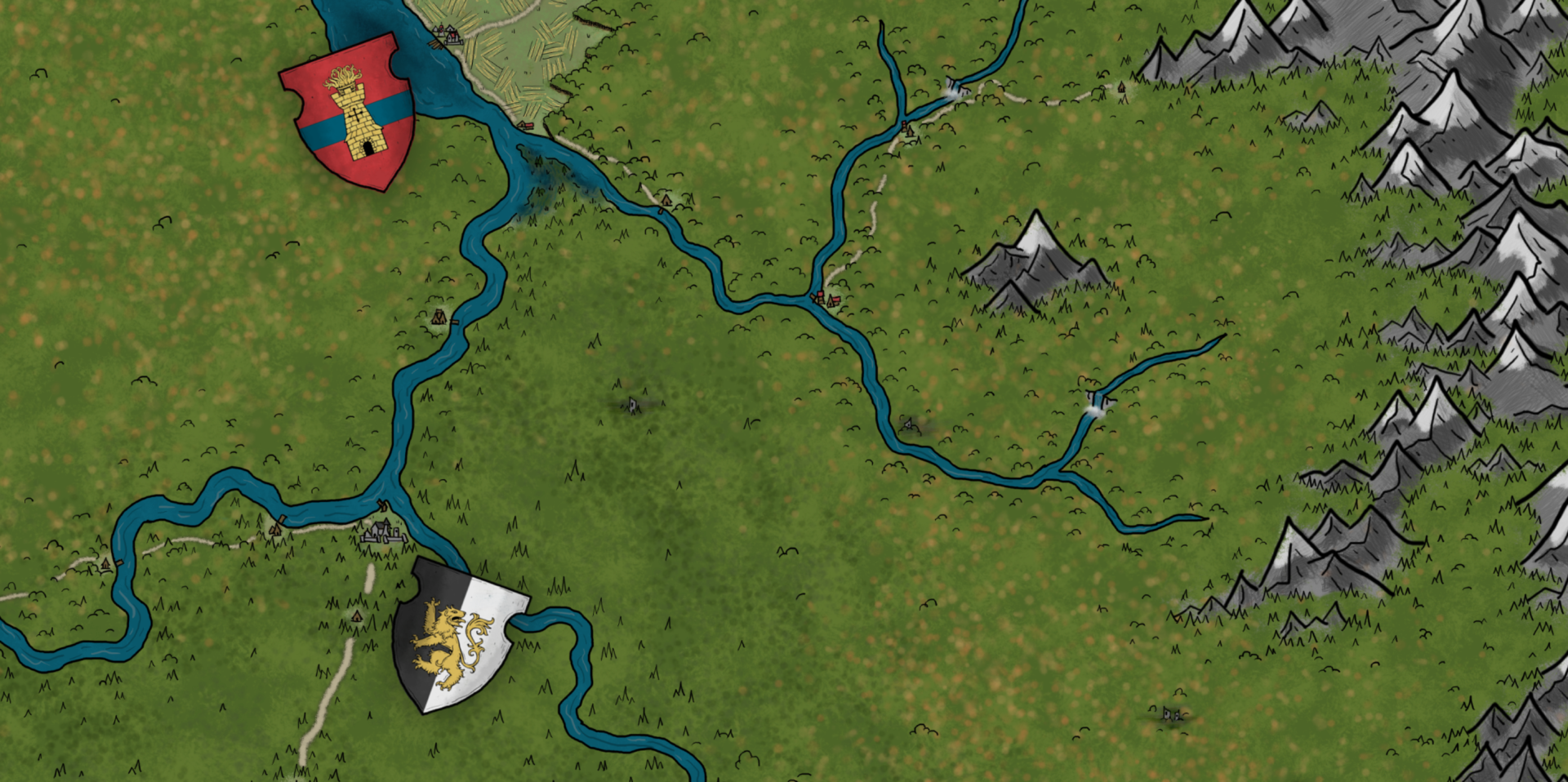Far and away, I play more Savage Worlds these days than any other system. It’s a great system for modeling breakneck action, and the Hindrance mechanics have elevated the roleplay of both myself and my players. As the usual GM in my gaming groups, maybe my favorite thing about Savage Worlds is the elegance of the mechanics. Not only is it easy to represent any player actions with a simple rule or two, it’s also much easier to prep than most systems I’ve used in the past.
There have been a lot of new savages lately thanks to the success of Savage Rifts. I don’t want to review a system that already has a ton of great reviews out there (I recommend this one on ENWorld) but I’d like to point the new folks toward a few of the community resources for the system.
First: Where I’m Coming From
My first character (circa 2001) was a dwarf warrior, the son of proud Erebor smiths, in the Middle-Earth Role Playing system back in middle school. Not much happened in that single-session game but I had already got what I’d come for: an extensive backstory for my character, including a family tree and battle cries translated into Khuzdul. Turns out I like worldbuilding!
I made my way through D&D 3.5 and Pathfinder with a preference for swashbuckler and monk characters. Storytelling came naturally to me but my GMs never cared much for player contributions to the story, so I used combat as a chance to roleplay with plenty of cinematic description. It was fun, but I always seemed to butt heads with the rigid mechanics of 3rd edition and its derivatives when I wanted to do something cool.
Feeling jaded about crunchy games lead to a fascination with the OSR, but in the end I took a detour into the wild and free land of indie RPGs. Some of my favorites from this time are Warrior, Rogue, and Mage, a storytelling game called Microscope, and a homebrew game called Empire! over on the Giant in the Playground Forums.
By 2015, I’d been limited to play-by-post games for four years and I was going crazy for a live game. My problem was that no one knew any of the tiny indie games I’d played… and I was hungry for a higher production value anyway. With my D&D shackles cast away, I set out to look for something midway between indie and top dog, with enough fans to be part of a community but without the monstrous buy-in costs of WOTC and Paizo. I kept reading things about Savage Worlds and decided to give it a try. A year and a half later, I’ve been thoroughly savaged by awesome game after awesome game. There is no end in sight!
Gaming Savagery
If you’re reading this blog, I’m going to assume you spend a fair bit of time online. You may also be part of the growing community of people who game online, and I’m pleased to report there are a lot of opportunities to try out Savage Worlds in digital format. Here are some of my favorites:
Fantasy Grounds: I had the opportunity to try out this Virtual Tabletop a couple weekends ago at FGCon. It can get expensive quickly, but you get a pretty incredible suite of features for that price: dice rolling, card decks for initiative etc., and you can access rule text for mechanics and abilities just by clicking on the appropriate entry in your character sheet. Fantasy Grounds has support for a lot of other systems too, so I recommend you check it out even if Savage Worlds isn’t your thing.
Roll20: It’s been a while since I’ve gamed with Roll20, but this VTT has a lot going for it. It runs from within your web browser and is mostly free (two things Fantasy Grounds can’t claim). It’s got great support for grid maps and minis, and I believe it integrates well with programs like Twitch (though I’ve never tried myself). Finally, it’s got a great search engine for finding games in just about any system.
Google Hangouts: This is my own platform of choice, more because of it’s simplicity than anything else. It’s little more than a video chat client, but it syncs well with YouTube so you can record and broadcast your games. You can also create custom overlay “name tags” for each participant, which can go a long way toward setting the atmosphere for your games. Google seems to be making a lot of changes with Hangouts recently (and not necessarily for the better), so this may not remain a good option for much longer.
The Savages
We are currently living in the most interconnected era in tabletop gaming history, so the community attached to a game really matters. I’m pleased to say Savage Worlds has a big, awesome, diverse community of players. Let me drop a few names and point out a few warrens of savagery:
Google+: Centered around the Official Savage Worlds G+ Community, Savage Worlds has a huge following on G+. Smaller offshoot communities can be found at Nerds-International (of which I am a network member) and the venerable masters at the SW GM Community. There are a lot of great people who post session recaps, fan products, maps, and all kinds of other goodies in all these communities.
Facebook: Perhaps a little quieter than G+, Facebook is nevertheless home to the Official Savage Worlds Facebook Group. Lots of people post pictures and random thoughts about games they’re running, and a few people organize online games from here. Definitely worth checking out.
Pinnacle Entertainment Group Forums: I would be remiss if I didn’t mention the official Pinnacle Forums. Of course, I am remiss because I’ve never actually registered on said forums, but I digress. I know this place is a great resource for both the game and its community, but the only surefire place I can point you is a collection of wisdom from Clint Black, the official brand manager for Savage Worlds.
Savage Listening
I’ve really caught the podcast bug in the past year. Fortunately, there are a few great podcasts in the Savage Worlds community:
SW GM Hangout: Between them, these guys seem to know literally everything about Savage Worlds, it’s rules, and it’s products. They can be inflammatory from time to time, but I’d say they’re the single biggest source for everything I know about Savage Worlds myself. I’ve linked to their YouTube channel but I know they can be found through most podcast apps as well.
SavageCast: Hailing out of the mighty bastion of savagery that is Colorado, the Savage Mommy and Savage Bull run a great show with advice, news from licensees, and interviews with people from all over the community. They were on a summer hiatus but I’m hoping for new episodes from them soon.
The Wild Die: This show basically started off as two guys teaching the game to each other on air, but it has since grown into a great source for information about the game. Each episode focuses either on a specific mechanic, a licensed setting, or an interview with one of the many creators in the community. They’re part of the Nerds-International network, which I mentioned up above.
Savage Bloggers Network News Podcast: While it was on the air, this was my favorite Savage Worlds podcast. Kristian and Ron managed to pack a huge amount of insight into their short-form episodes. They were chill, knowledgeable, and passionate about sharing the news of the community. They don’t make new episodes anymore, but luckily their archives are available to check out.
For all you new Savages, I hope this is a good way to familiarize yourself with the terrain of the community. That said, I know I’ve missed things. Help me round this out by posting in the comments with your favorite sources for games, news, and fan creations in the Savage Worlds community!


4 thoughts on “A Horde of Savages”
I bought Microscope last year but haven’t had a chance to read it. I heard a lot of good things about it. Would be cool if you could run a game for us on your show (I believe Google Hangouts and a White board or cork board app would handle it) or on the Murder Hobo show. Just sayin’
I’d be happy to! It’s a great worldbuilding tool. I’ll see if there are any tips for running a game online.
This hits me in all the feels… Thanks for the kind words!
You’re welcome, Ron! Thanks for making such an awesome podcast.
Comments are closed.